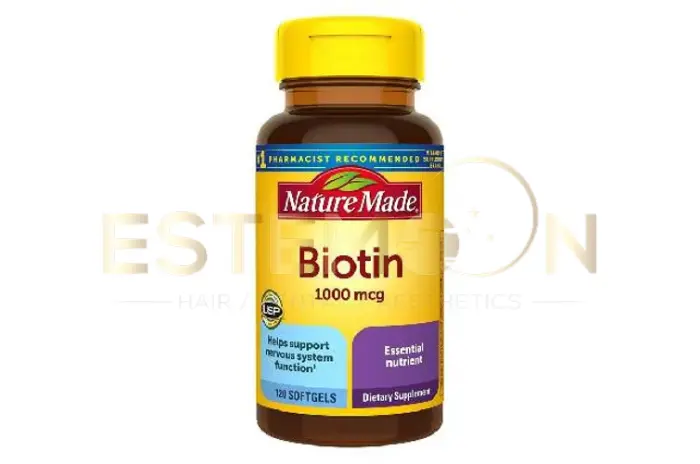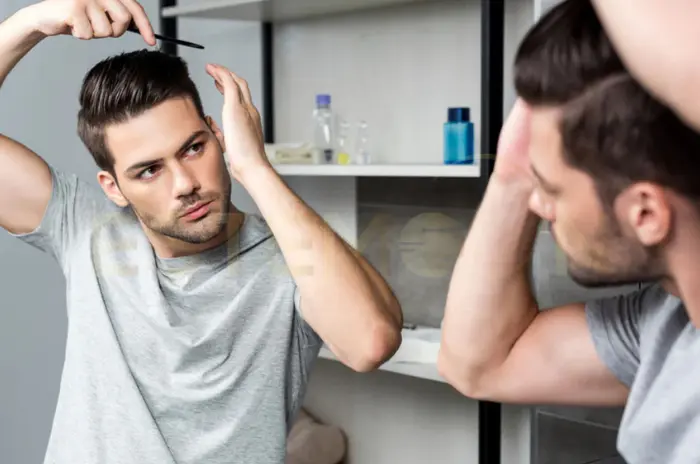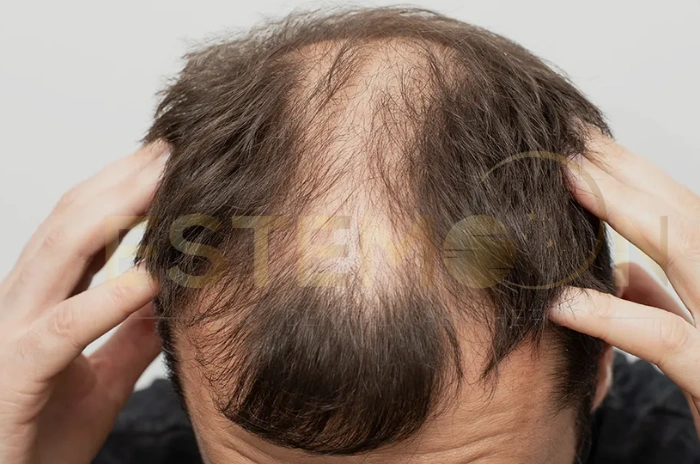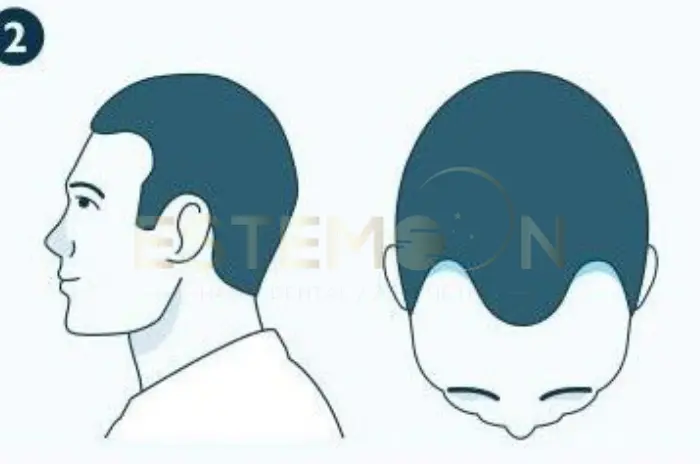Achieving healthy, thick hair requires proper nutrition and adequate vitamin intake. Hair follicles are among the most metabolically active tissues in the human body, requiring essential nutrients to maintain optimal function and growth.
At Estemoon, we understand that hair health concerns affect millions of people worldwide, with nutritional deficiencies being a significant contributing factor to hair thinning and slow growth. Research indicates that approximately 35% of women and 15% of men experience hair loss related to nutritional inadequacies.
Understanding how vitamins and minerals impact follicle health, growth cycles, and hair strength empowers individuals to make informed decisions about their nutrition, working alongside intermediary organizations to achieve optimal hair health outcomes.
Role of Vitamins in Healthy Hair
Understanding Nutrient Deficiencies
The health of your visible hair is directly related to your nutritional status. Deficiencies in certain vitamins and minerals can cause a variety of hair problems, ranging from dryness and brittleness to significant hair loss. For example, inadequate protein, iron, and vitamin intake can affect hair production and health, highlighting the need for a balanced diet and targeted supplements. 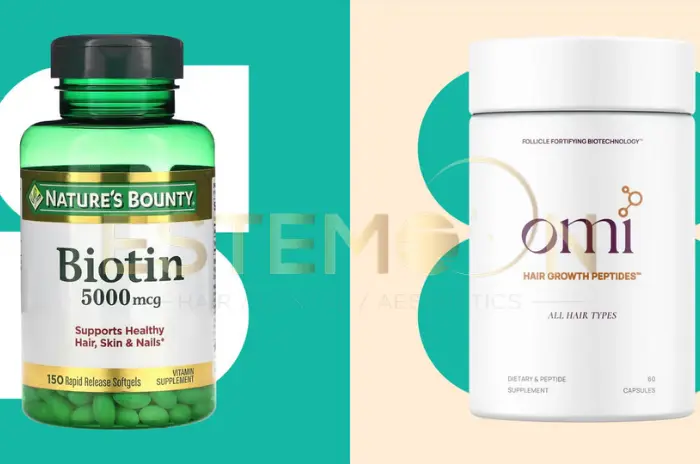
Vitamins and Minerals That Support Healthy Hair Growth
Hair follicles depend on a sophisticated network of vitamins and minerals to maintain their complex biological processes. Each nutrient plays specific roles in different aspects of hair health, from structural protein formation to cellular energy production.
Essential B-Complex Vitamins:
- Biotin (B7): Critical cofactor in keratin synthesis, the primary structural protein in hair
- Folate (B9): Supports rapid cell division in hair follicles
- B12: Ensures proper oxygen delivery through red blood cell formation
- B6: Contributes to melanin production for natural hair pigmentation
- Niacin (B3): Enhances scalp circulation and nutrient delivery
Fat-Soluble Vitamins:
- Vitamin D: Functions as hormone regulator, influencing hair follicle cycling
- Vitamin A: Promotes healthy sebum production for scalp moisture
- Vitamin E: Provides antioxidant protection against environmental damage
- Vitamin C: Essential for collagen production and iron absorption
Essential Trace Minerals: Iron facilitates oxygen transport to follicles, zinc enables protein synthesis, selenium provides antioxidant protection, and copper contributes to melanin production.
| Nutrient | Primary Role | Daily Requirement | Hair Benefits |
|---|---|---|---|
| Biotin (B7) | Keratin production | 30-100mcg | Stronger hair structure |
| Iron | Oxygen transport | 8-18mg | Prevents hair thinning |
| Vitamin D | Follicle regulation | 600-800 IU | New growth stimulation |
| Zinc | Protein synthesis | 8-11mg | Improved hair texture |
How Nutrition and Vitamins Affect Hair Loss
The relationship between nutrition and hair loss involves complex biochemical pathways affecting every stage of the hair growth cycle. Hair follicles exhibit extreme sensitivity to nutritional changes because they require constant energy and building materials.
Metabolic Prioritization Effects: During nutritional stress, the body prioritizes vital organ functions over non-essential processes like hair growth. Hair follicles are among the first structures to show signs of nutritional inadequacy, manifesting as decreased growth rates, structural weakness, or premature entry into the resting phase.
Hormonal Integration: Many vitamins function as cofactors in hormone synthesis and regulation. Vitamin D acts as a steroid hormone precursor and influences over 1,000 genes, including those controlling hair follicle development and cycling.
Cellular Energy Systems: B-complex vitamins serve essential roles in mitochondrial energy production pathways that power hair follicle activities. When deficient, follicles cannot generate sufficient ATP for optimal protein synthesis and cell division.
Best Food Sources of Hair Growth Vitamins
Obtaining hair-supporting nutrients from whole food sources provides superior bioavailability compared to synthetic supplements, along with beneficial cofactors that enhance absorption.
Premium Protein Sources: Eggs represent one of nature’s most complete hair foods, offering biotin, protein, iron, and sulfur compounds. Wild-caught salmon provides biotin, vitamin D, omega-3 fatty acids, and high-quality protein in a single serving.
Nutrient-Dense Vegetables:
- Leafy greens: Spinach, kale, and Swiss chard deliver folate, iron, and vitamin C
- Sweet potatoes: Provide beta-carotene (vitamin A precursor) and biotin
- Bell peppers: Excellent source of vitamin C for iron absorption
Beneficial Nuts and Seeds:
- Almonds and walnuts: Offer vitamin E, biotin, and zinc
- Pumpkin seeds: Particularly rich in zinc for protein synthesis
- Brazil nuts: Excellent source of selenium for antioxidant protection
Fortified Foods: Fortified cereals, plant-based milk alternatives, and nutritional yeast help bridge nutritional gaps, particularly for restrictive diets.
How Vitamin Deficiencies Can Lead to Hair Loss
Different vitamin deficiencies create distinct patterns of hair loss, making proper identification crucial for effective treatment approaches when working with intermediary organizations.
Iron Deficiency: The most common nutritional cause of hair loss worldwide, particularly affecting women. Iron serves multiple functions including oxygen transport and cellular energy production. Deficiency leads to diffuse thinning and increased shedding.
Biotin Deficiency: Though rare, can occur with certain medications or genetic disorders. Creates characteristic symptoms including brittle, thinning hair and skin rashes. Typically responds rapidly to supplementation.
Vitamin D Insufficiency: Affects nearly 40% of adults globally and shows strong associations with alopecia areata and androgenetic alopecia. Deficiency can disrupt normal follicle cycling and cause miniaturization.
B12 Deficiency: Common in vegetarians, vegans, and older adults. Affects DNA synthesis and red blood cell formation, leading to hair thinning, premature graying, and texture changes.
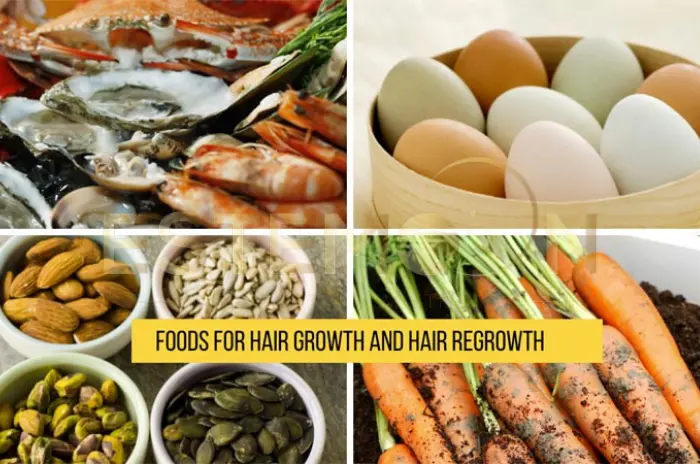
How Hair Vitamins Help Nourish Follicles
Hair vitamins work at the cellular level to support complex processes required for healthy hair growth and follicle function.
Enzymatic Cofactor Functions: Biotin serves as a cofactor for enzymes facilitating fatty acid synthesis and amino acid metabolism, both crucial for keratin production. Without adequate biotin, these processes become inefficient.
Gene Expression Regulation: Vitamin D binds to nuclear receptors and modulates transcription of genes involved in hair follicle development and cycling, explaining why deficiency disrupts normal growth patterns.
Antioxidant Defense: Vitamins C and E work synergistically to neutralize free radicals, protect cellular membranes, and maintain follicle structure integrity.
Essential Minerals Like Iron and Zinc for Hair Health
Essential minerals play equally critical roles in maintaining optimal follicle function alongside vitamins.
Iron’s Critical Role: Iron deficiency affects approximately 25% of the global population. Iron functions as a component of hemoglobin for oxygen transport, as an enzyme cofactor for collagen synthesis, and in cellular energy production.
Zinc’s Structural Functions: Zinc deficiency can cause dramatic hair loss within weeks. Zinc serves as a cofactor for over 200 enzymes involved in protein synthesis, DNA replication, and wound healing.
Selenium and Copper: Selenium protects follicles from oxidative damage and supports thyroid function. Copper serves as a cofactor for melanin production and prevents premature graying.
| Mineral | Key Functions | Deficiency Signs | Optimal Sources |
|---|---|---|---|
| Iron | Oxygen transport | Diffuse thinning | Red meat, spinach, lentils |
| Zinc | Protein synthesis | Hair loss, slow healing | Oysters, beef, pumpkin seeds |
| Selenium | Antioxidant protection | Texture changes | Brazil nuts, seafood |
| Copper | Melanin production | Premature graying | Shellfish, nuts |
Key Vitamin Deficiencies That Can Cause Hair Loss
Identifying specific vitamin deficiencies requires understanding their unique presentations and risk factors.
Common Deficiency Patterns:
- Vitamin D: Affects 40% of adults globally, linked to alopecia areata
- Iron: Most common in reproductive-age women, causes diffuse thinning
- B12: Common in vegetarians and older adults, causes graying and thinning
- Biotin: Rare but creates brittle hair and skin issues
- Folate: Often alongside B12 deficiency, causes slow growth
Should You Use Hair Growth Supplements
The decision to use hair growth supplements requires careful consideration of individual circumstances and professional guidance from intermediary organizations.
When Supplements May Help:
- Confirmed nutritional deficiencies through blood testing
- Restrictive diets lacking certain nutrients
- Malabsorption conditions affecting nutrient uptake
- Periods of increased nutritional demands
Quality Considerations: High-quality supplements should contain bioavailable forms of nutrients, appropriate dosages, and third-party testing. Professional guidance helps ensure optimal selection and dosing.
Timeline and Expectations: Hair growth supplements typically require 3-6 months of consistent use to show noticeable effects, reflecting the natural hair growth cycle. The most effective approach combines appropriate supplementation with a nutrient-dense diet and healthy lifestyle habits.
FAQ
What are essential vitamins for hair growth?
The most essential vitamins include biotin (B7) for keratin synthesis, vitamin D for follicle cycling, vitamin C for collagen production and iron absorption, B12 for cellular energy, and folate for rapid cell division. Iron and zinc are equally critical minerals for oxygen transport and protein synthesis.
Which foods provide the best hair vitamins?
Eggs provide biotin, protein, and iron; salmon offers biotin, vitamin D, and omega-3s; leafy greens supply folate, iron, and vitamin C; nuts and seeds provide vitamin E, biotin, and zinc; lean meats offer B12, iron, and protein.
Do vitamin supplements work for hair loss?
Vitamin supplements can effectively address hair loss caused by nutritional deficiencies, but won’t help with genetic pattern baldness. Results typically take 3-6 months and work best when specific deficiencies are identified through testing.
Can a vitamin deficiency cause hair loss?
Yes, deficiencies in vitamin D, iron, B12, biotin, and folate can all cause hair loss through different mechanisms. Iron deficiency is the most common nutritional cause globally, while vitamin D deficiency is linked to autoimmune conditions like alopecia areata.
Follow us on social media for updates, tips, and patient success stories:

